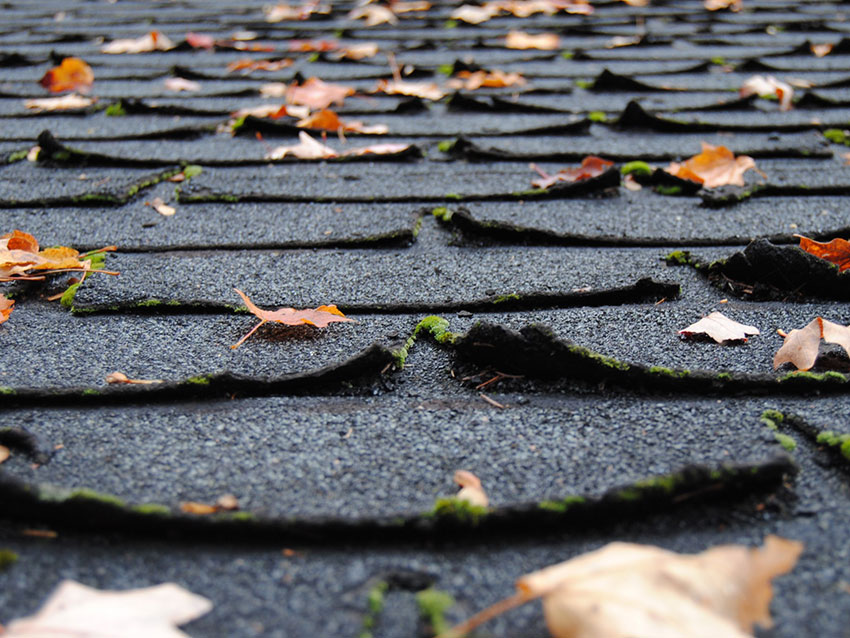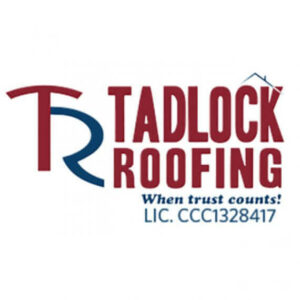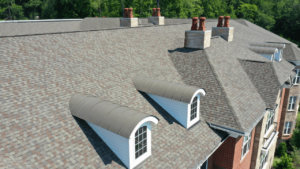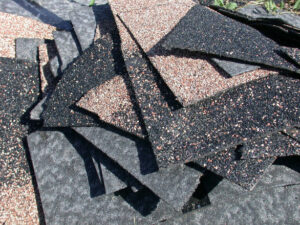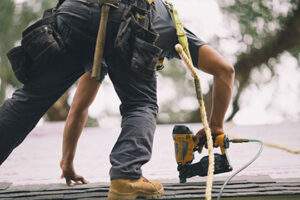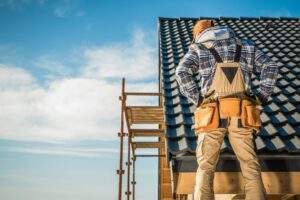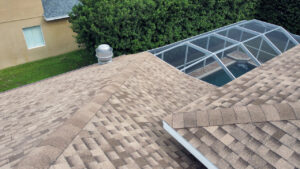When was the last time you thought about your roof? For most North Florida homeowners, it’s easy to overlook the roof’s age—until something goes wrong.
But here’s the truth: the majority of homes in the US have shingled roofs, and those shingles aren’t designed to last forever. If you have three-tab shingles, you should be planning for a roof replacement every 15 to 20 years. For 25-year architectural shingles, that timeline extends to 18 to 25 years.
The problem? Many homeowners are finding that Florida’s harsh sun, heavy rains, and storms are causing their shingles to wear out far sooner than the warranties suggest.
And if worn-out shingles are left unattended, the damage can be costly. Think leaks, water damage, and structural issues.
So, how can you tell if your shingles are nearing the end of their lifespan? Let’s explore the key signs.
Key Takeaways:
- Look for cracked, curling, or missing shingles as signs it’s time for replacement.
- Florida’s harsh weather can shorten shingle lifespan.
- Regular inspections can prevent costly damage.
- Replacing worn shingles improves home protection and curb appeal.
Factors That Contribute to a Shorter Shingle Lifespan
Even though shingles are built to last, many things can cut their lifespan short. Here are some common culprits:
Sun Damage
Living in Florida means plenty of sunshine. Great for the beach, but not so much for your shingles.
Over time, constant exposure to UV rays can cause them to crack, dry out, and become brittle. This is why you’ll often see cracked or curling shingles on older roofs that have been baking in the sun for years.
Driving Winds and Heavy Rains
Florida’s infamous storms can badly affect your shingles. Driving winds can loosen them, and heavy rain can lead to moisture seeping underneath.
Once water gets in, it’s a one-way ticket to roof leaks, rot, and even mold. After a big storm, it’s always a good idea to check your roof for damage, especially for missing or loose shingles.
Pressure Washing
While pressure washing your roof might seem like a quick way to make it look new, it can actually do more harm than good. High-pressure water can strip away the protective granules from your shingles, speeding up their deterioration. If your roof needs cleaning, opt for gentler methods that won’t damage the shingles and ensure you’re prolonging the life of your new roof.
Signs of Wear: How to Tell It’s Time to Replace Shingles
Keeping an eye on your shingles can help you avoid bigger, more costly issues down the road. Here are the key signs that it’s time to consider a roof replacement:
Buckling or Bending Shingles
If you notice your shingles are starting to buckle or bend, it’s a red flag. This is often caused by moisture getting trapped underneath or poor attic ventilation.
Not only does this look bad, but it can also make your roof less effective at keeping water out. These issues may prompt you to get your roof replaced sooner than planned.
Deteriorating Shingles
Asphalt shingles will naturally deteriorate over time, especially when exposed to Florida’s sun, rain, and wind.
If you see cracking, peeling, or blistering shingles, it’s a sign they’ve reached the end of their life. When shingles start falling apart like this, they can’t protect your home the way they should. One of the easiest ways to look at your shingle roof and gauge its protection level is by seeing your shingle edges or faces shining in the sun. The shining effect you are seeing is the fiberglass mat at the core of your shingles. Seeing this means that your protective layers of the shingles have either been damaged or worn away.
Missing Shingles
If your roof looks a little patchy, with some shingles missing, it’s time to take action.
Missing shingles leave the underlying roofing materials exposed, which can lead to leaks and water damage. This is especially common after storms with high winds, so make sure to inspect your roof if you’ve had any recent bad weather.
Granule Loss
You might notice tiny granules (those small, sand-like particles) collecting in your gutters or around your downspouts.
These granules protect your shingles from the sun, and losing them means your shingles are on their last legs. If you spot significant granule loss, it’s a good indicator that your shingles need replacing.
Moss and Algae Growth
While a little moss might seem harmless, it can actually trap moisture against your shingles, leading to rot over time. Algae, which shows up as black streaks, isn’t as damaging but still indicates your roof could use some attention. If moss or algae is taking over your existing roof, it might be time to consider a new roof, especially if the shingles underneath are starting to weaken.
The Age of Your Roof
Even if your shingles look okay, age alone can be a reason to replace your roof. Most asphalt shingles last around 20 to 25 years.
If yours is creeping up at that age, it’s smart to have a professional inspection to determine if replacement is necessary before any big problems arise. Regular roof replacements will help avoid leaks and further damage that can occur if the roof is not replaced in a timely manner.
Why Timely Shingle Replacement is Essential
Procrastinating on shingle or roof replacement might seem like you’re saving money, but it can actually cost you more in the long run. Here’s why:
- Prevent Water Damage: Damaged shingles can let water into your home, leading to leaks, mold, and even structural damage.
- Energy Efficiency: Worn-out shingles don’t insulate your home as well, meaning your HVAC system has to work harder to keep things comfortable. A new roof can help improve your energy efficiency, which saves money on utility bills.
- Boost Curb Appeal: Your roof is a big part of your home’s appearance. Replacing old, faded, or damaged shingles can give your home an instant facelift and even increase its resale value.
- Avoid Expensive Repairs: Catching shingle issues early and replacing them when needed can help you avoid larger, more expensive repairs down the road. It’s much cheaper to replace shingles now than to replace a roof deck or deal with water damage inside your home.
What to Do When You Notice Shingle Damage
Conduct a Roof Inspection
First things first, take a close look at your roof. You don’t need to climb up there; a pair of binoculars will usually do the trick. Look for any signs of damage like curling, cracking, or missing shingles. Also, check your gutters for granules and keep an eye out for moss or algae buildup.
Call a Professional Roofing Contractor
If you spot any damage or just aren’t sure about the condition of your shingles, it’s best to call in a pro. A roofing contractor can give your roof a thorough inspection and let you know if it’s time for a repair, a roof installation, or a full shingle replacement. Make sure to choose a contractor who is experienced and has good reviews. After all, your roof is one of the most important parts of your home.
Top Shingle Options for Long-Lasting Protection and Curb Appeal
At Tadlock Roofing, we offer top-tier shingle options to suit your style and protection needs:
| Shingle Type | Key Feature | Warranty & Benefits |
| TruDefinition® Duration® Shingles | Premium look with bold contrast | SureNail® Technology, 50-year warranty, and wind resistance up to 130 MPH |
| Oakridge® Shingles | Warm, inviting colors | 50-year warranty |
| Supreme® Three-Tab Shingles | Affordable and durable | Class A UL Fire Rating, and 25-year warranty |
Need Help with Your Roof? We’ve Got You Covered!
Now that you know the signs it’s time to replace your shingles, Tadlock Roofing is here to help with the next steps. Whether you need an expert inspection or guidance on the best shingles for your home, our team is ready to assist. We’ll ensure your roof is in top shape and provide peace of mind through every season.
Give us a call at 855-694-7376 or fill out our online form to schedule a consultation today!


